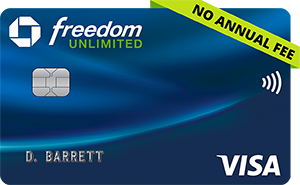The Tale of Two Limits: Chase Freedom Unlimited® Credit Limit
The credit limit on the Chase Freedom Unlimited® is a paradox, a dual reality that depends entirely on the cardholder's financial profile. It's the minimum for some and a gateway to a generous line of credit for others, reflecting not the card's potential, but the issuer's confidence in you. This tale of two limits creates a distinctly different experience for each user, defining whether the Freedom Unlimited is a minor tool or a significant financial asset.
For those with limited or rebuilding credit, the Chase Freedom Unlimited® often begins its life as a modest workhorse. Cardholders may start with a relatively small limit, sometimes as low as $500. For these users, the card is less about maximizing rewards and more about proving financial responsibility. The limit can feel constricting, making it a challenge to keep credit utilization low, especially with the 1.5% rewards structure encouraging everyday use. For this segment, the card is a stepping stone, a carefully monitored opportunity to build a relationship with Chase, with the hope that responsible usage will eventually unlock a higher spending ceiling.
Conversely, for applicants with excellent credit, high income, and low debt, the Chase Freedom Unlimited® can start with a significantly higher limit, potentially in the five-figure range. The Visa Signature version of the card starts at a minimum of $5,000, and some cardholders have reported receiving even higher initial limits. For these individuals, the credit limit is a non-issue; it's a tool that provides ample purchasing power without jeopardizing a low credit utilization ratio. With a substantial credit line, they can fully leverage the card's 1.5% flat cash back on all purchases, comfortably putting large expenses on the card while effortlessly earning rewards.
The credit limit, in essence, becomes a barometer of financial trust. While some users lament a slow increase, others find Chase responsive to requests for higher limits after demonstrating a history of responsible use. It's a reminder that with the Chase Freedom Unlimited®, the relationship is a two-way street. The card offers a consistent and valuable reward structure, but the true scale of its utility—the ability to put significant spending on it—is a journey, not a destination. For some, it’s a tight budget to be managed carefully; for others, it's a wide-open field for earning rewards. The Freedom Unlimited’s credit limit is not a single feature, but a dynamic part of the cardholder's financial narrative, evolving with their credit journey.
Ready to apply?
Chase Freedom Unlimited®

- Intro Offer: Earn a $200 Bonus after you spend $500 on purchases in your first 3 months from account opening
- Enjoy 5% cash back on travel purchased through Chase Travel℠, our premier rewards program that lets you redeem rewards for cash back, travel, gift cards and more; 3% cash back on drugstore purchases and dining at restaurants, including takeout and eligible delivery service, and 1.5% on all other purchases.
- No minimum to redeem for cash back. You can choose to receive a statement credit or direct deposit into most U.S. checking and savings accounts. Cash Back rewards do not expire as long as your account is open!
- Enjoy 0% Intro APR for 15 months from account opening on purchases and balance transfers, then a variable APR of 18.49% - 27.99%.
- No annual fee – You won't have to pay an annual fee for all the great features that come with your Freedom Unlimited® card
- Keep tabs on your credit health, Chase Credit Journey helps you monitor your credit with free access to your latest score, alerts, and more.
- Member FDIC
See Card Terms and Conditions
Related Articles
Found this guide helpful? Bookmark it for future reference as you continue your financial journey!
Experian Boost: A Comprehensive Guide to Boosting Your Free Credit Score
FICO® Credit Scores
FICO® Score Ranges:
- Exceptional: 800–850
- Very Good: 740–799
- Good: 670–739
- Fair: 580–669
- Poor: 300–579
What is a Credit Score?
A credit score is a three-digit number, typically ranging from 300 to 850, that predicts your creditworthiness—how likely you are to repay borrowed money on time. Lenders use this score to assess the risk of lending to you and to determine the interest rates and terms of any credit you might receive.
Why is a Credit Score Important?
A credit score is important because it acts as your financial reputation. Lenders, landlords, insurers, and employers use this single number to quickly judge how reliable you are with money. A higher score helps you qualify for loans and credit cards, often securing lower interest rates that can save you significant money. Conversely, a poor credit score can lead to application denials or much higher costs for borrowing, making it a key factor in your overall financial opportunities.
FICO® Credit Score Facts
- Three-Digit Number: Like other credit scores, FICO® Scores are a three-digit number that summarizes a consumer's credit risk.
- Range: Most standard FICO® Scores range from 300 to 850. Higher scores indicate lower credit risk.
- Data Source: FICO® Scores are calculated using data from your credit reports maintained by the three major credit bureaus: Experian, Equifax, and TransUnion. Your score may vary slightly depending on which bureau's data is used.
- Industry Standard: Lenders rely on FICO® Scores for mortgages, auto loans, and credit cards because they provide a consistent, statistically sound assessment of the likelihood that a borrower will repay their debt.
Note: Credit scores are used to represent the creditworthiness of a person and may be one indicator to the credit type you are eligible for. However, credit score alone does not guarantee or imply approval for any credit card product.
